2025.06.06
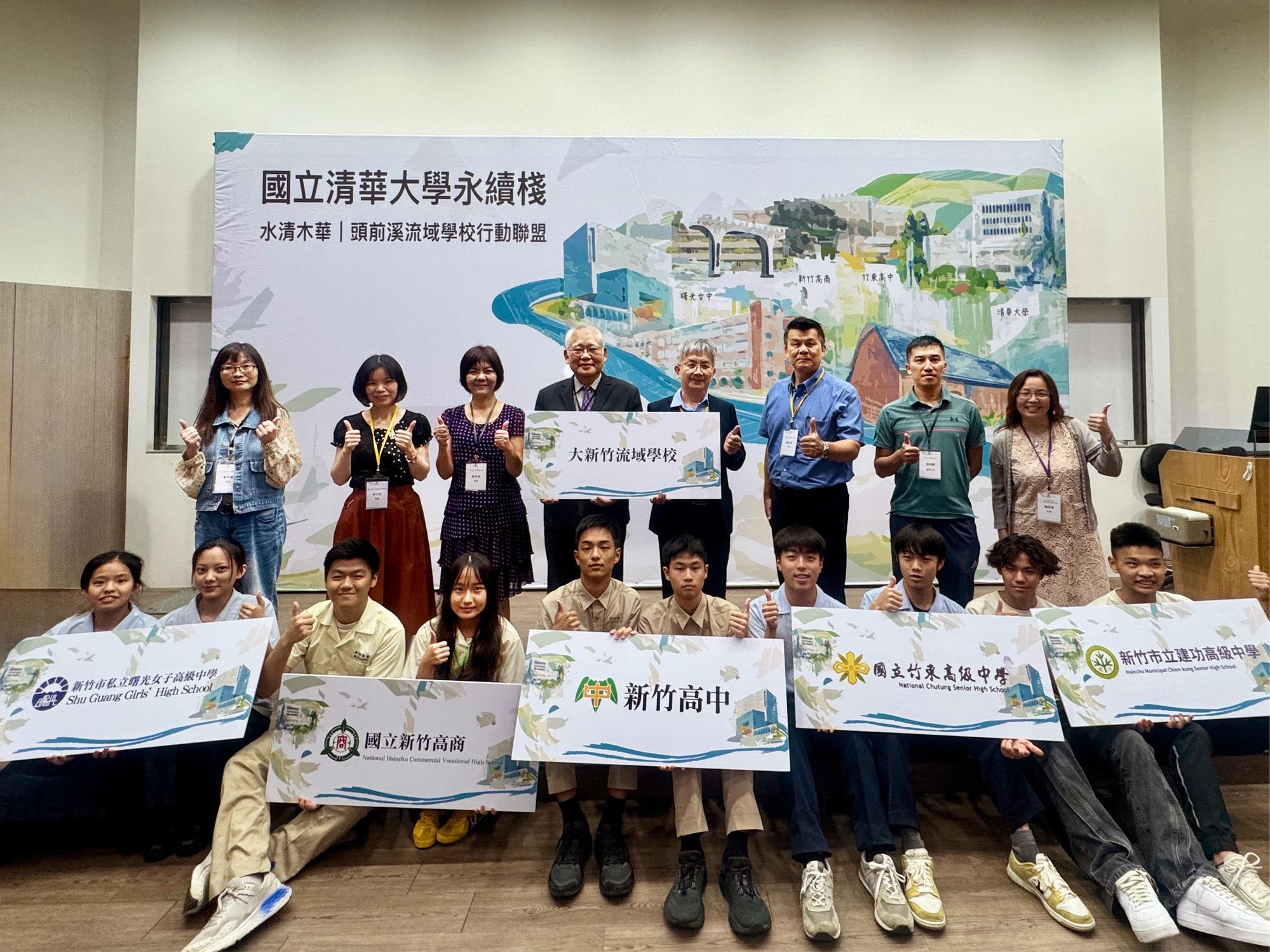
NTHU has recently teamed up with five high schools in Hsinchu County and Hsinchu City to establish the Greater Hsinchu River Basin Alliance.
The Touqian River, which is the longest river in Hsinchu County, provides drinking water for 750,000 people. On June 5 National Tsing Hua University (NTHU) in Taiwan launched a project with five high schools in Hsinchu County and Hsinchu City to establish the Greater Hsinchu River Basin Alliance, with each school adopting one river. The overall strategy is to use curriculum design, teacher empowerment, and student activities to imbue the next generation with local awareness and the ability to act effectively for the common good.
The participating schools in the Alliance are National Chutung Senior High School (CTHS), National Hsinchu Commercial Vocational High School (HCCVS), Hsinchu Senior High School (HCHS), Hsinchu Municipal Chien-kung Senior High School (CKSH), and Shu Guang Girls' High School (SGGS). The opening ceremony was attended by the principals and other representatives of each school.
The Alliance was initiated by Professor Hsiu-Chuan Chou (周秀專) of the Institute of Analytical and Environmental Sciences at NTHU, who said that education is the key to changing society. She added that NTHU teachers and students have already opened general education courses on campus and are currently cooperating with high schools and vocational schools to offer similar courses with a hands-on component.
“The idea is for each participating school to establish a connection with its adopted river by setting up an environmental education model that gives students a better understanding of their local environment, thereby incentivizing them to take better care of it,” explained Chou.
Course plans, teacher training, and grants for curriculum development, all focusing on local water resources, will be provided to each participating school by NTHU.
NTHU senior vice presidents Nyan-Hwa Tai (戴念華) said that the purpose of the Alliance is to promote sustainable management and environmental protection, with an emphasis on passing on a healthy environment to future generations, as well as motivating high school students to explore related issues in technology and the humanities.
Also during the opening ceremony, Chien-Cheng Chen (陳建成), deputy director of the Water Resources Agency of the Ministry of Economic Affairs, said that the project is sure to have a positive impact on how the river basin is managed. He explained that the numerous typhoons and water shortages in Taiwan in recent years have made it clear that the nation's river management needs to be more forward-looking and systematic. For this reason, he said that it is important to take into account local culture and environmental features, while facilitating cooperation between various government departments.
CTHS principal Wen-Ko Chan (詹文克) said that his school has previously cooperated with NTHU on water quality surveys and watershed courses, and that the Alliance is a way of building on this existing foundation. He pointed out that high schools need to supplement textbook learning with courses that teach students how to identify problems and find solutions while working with the community.
Chan said that the Alliance is developing courses that begin with hydrology and geography, build skills in field research and experimentation, and eventually develop competencies in community engagement and advocacy—such as presenting ideas at neighborhood assemblies or temple forums, and organizing programming competitions—to foster cross-disciplinary collaboration and real-world action.
HCHS principal Chen-Hsiang Guo (郭珍祥) said that the Alliance will provide students with an opportunity to learn about ecology and to put what they learn into practice. She pointed out that the Tingfu Canal flows through her campus, so “Learning about this canal equates to knowing where you live.”
Guo said that high school students already find it difficult to keep up with their studies, but with specialized expertise provided by NTHU it will be possible to fully integrate environmental education into the school's existing curriculum, in the process inspiring students to have a positive impact on the environment.
NTHU launched the Touqian River Basin Conservation Project in 2021, and established the “NTHU Sustainability Hub for Environmental Science and Watershed Ecosystems” last year. Hub members Chou, Hong-Lin Chan (詹鴻霖) of the Department of Medical Science, and Ruey-An Doong (董瑞安) of the Institute of Analytical and Environmental Sciences have studied the river's substrate and the health hazards posed by the pollutants present in the water. Nen-Fu Huang (黃能富) of the Department of Computer Science and Engineering and Shun-Chi Wu (吳順吉) of the Department of Engineering and System Science used AI imaging to identify pollutants and developed an automated warning system.
Jow-Ran Chang (張焯然) of the Department of Quantitative Finance has been working on promoting the ideas of green finance and protecting Taiwan's rivers to various groups, trust funds and enterprises. Project co-director Chun-Ming Chen (陳俊銘) of the Regional Innovation Center and Tonny Kuo (郭孟倫) of the College of Technology Management are designing a general education course focusing on training students to come up with innovative and feasible solutions to pressing environmental issues.
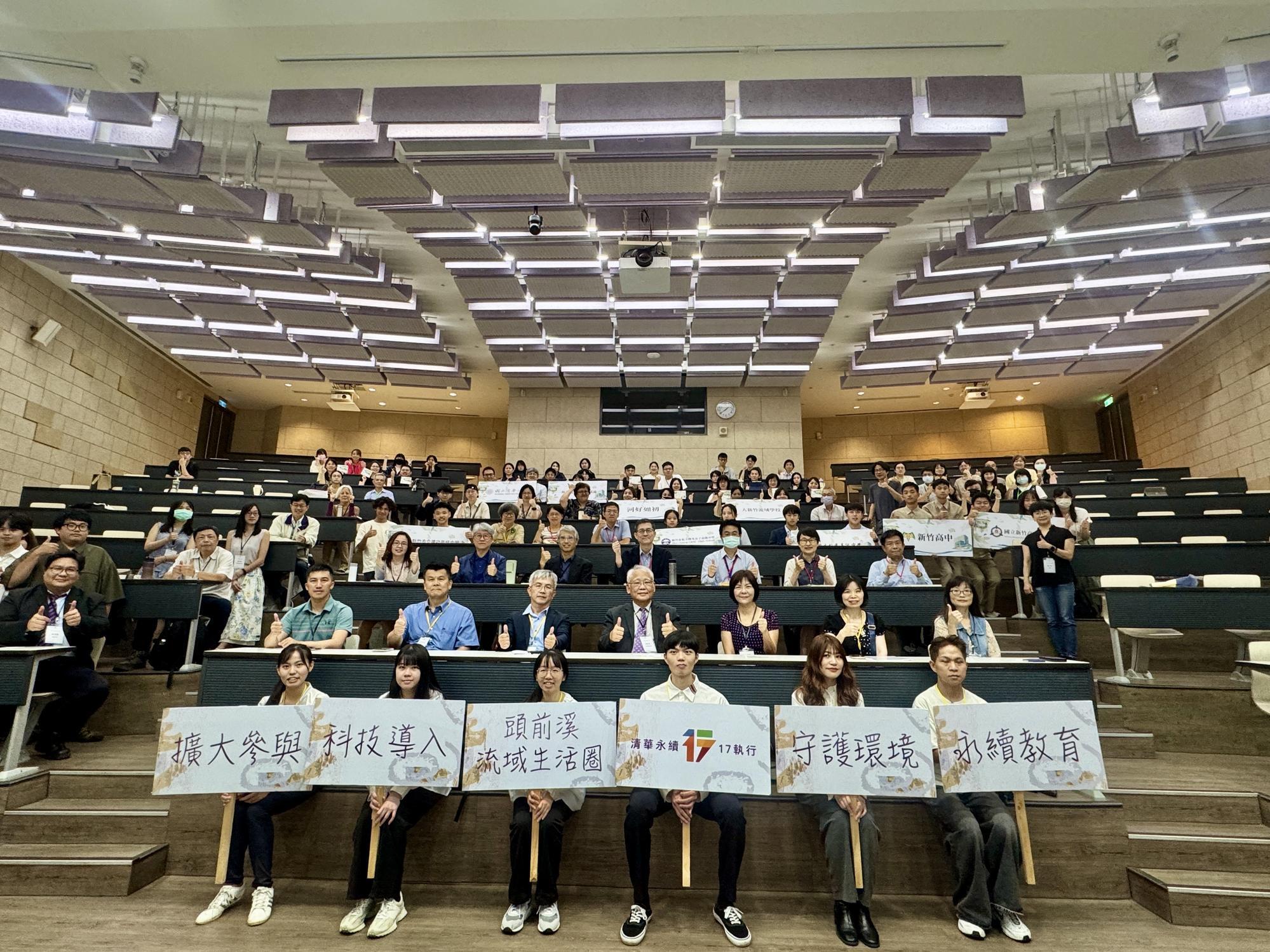
NTHU has recently teamed up with five high schools in Hsinchu County and Hsinchu City to establish the Greater Hsinchu River Basin Alliance.
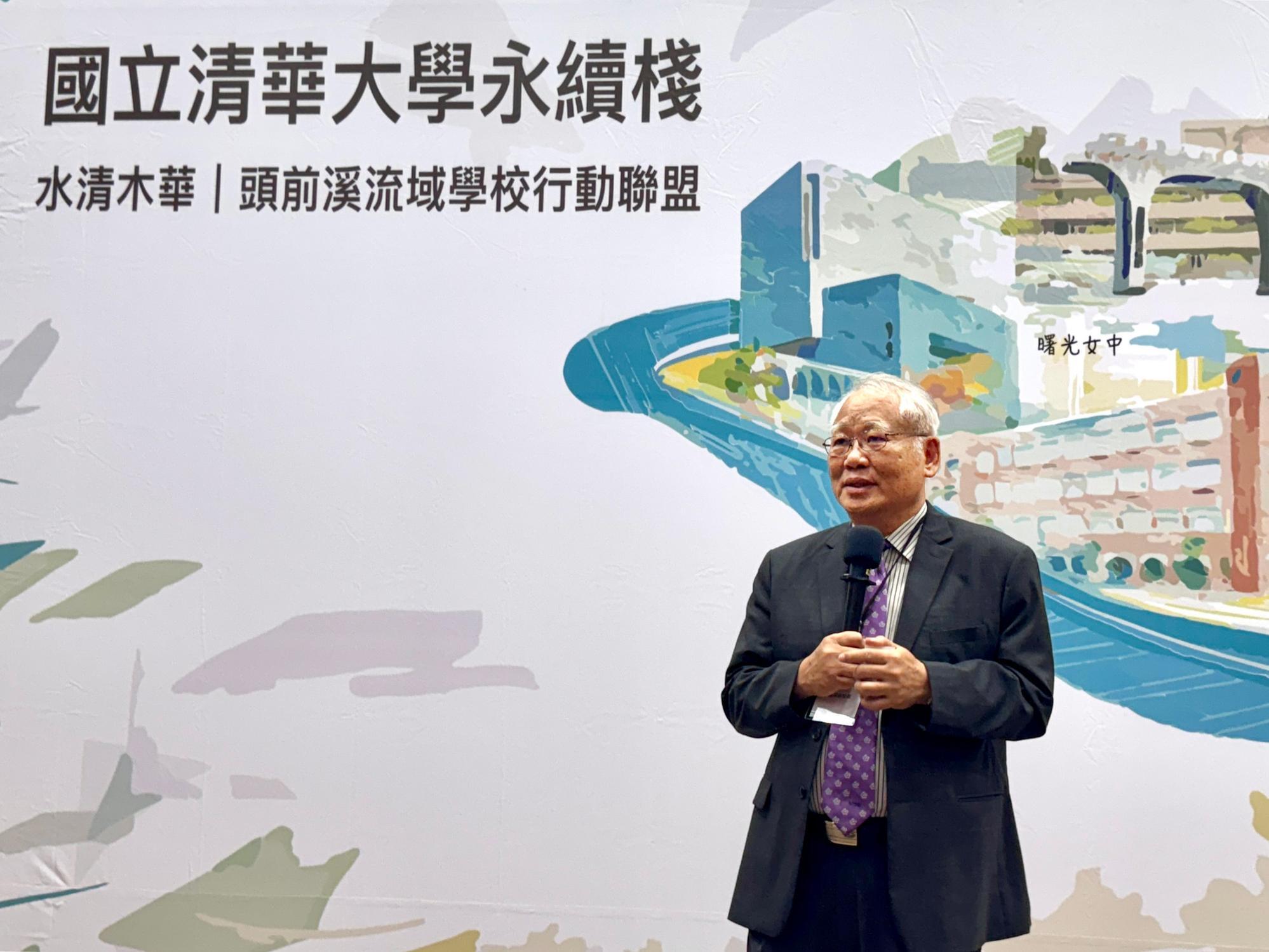
NTHU senior vice president Nyan-Hwa Tai (戴念華) said that the purpose of the Alliance is to promote education in sustainability.
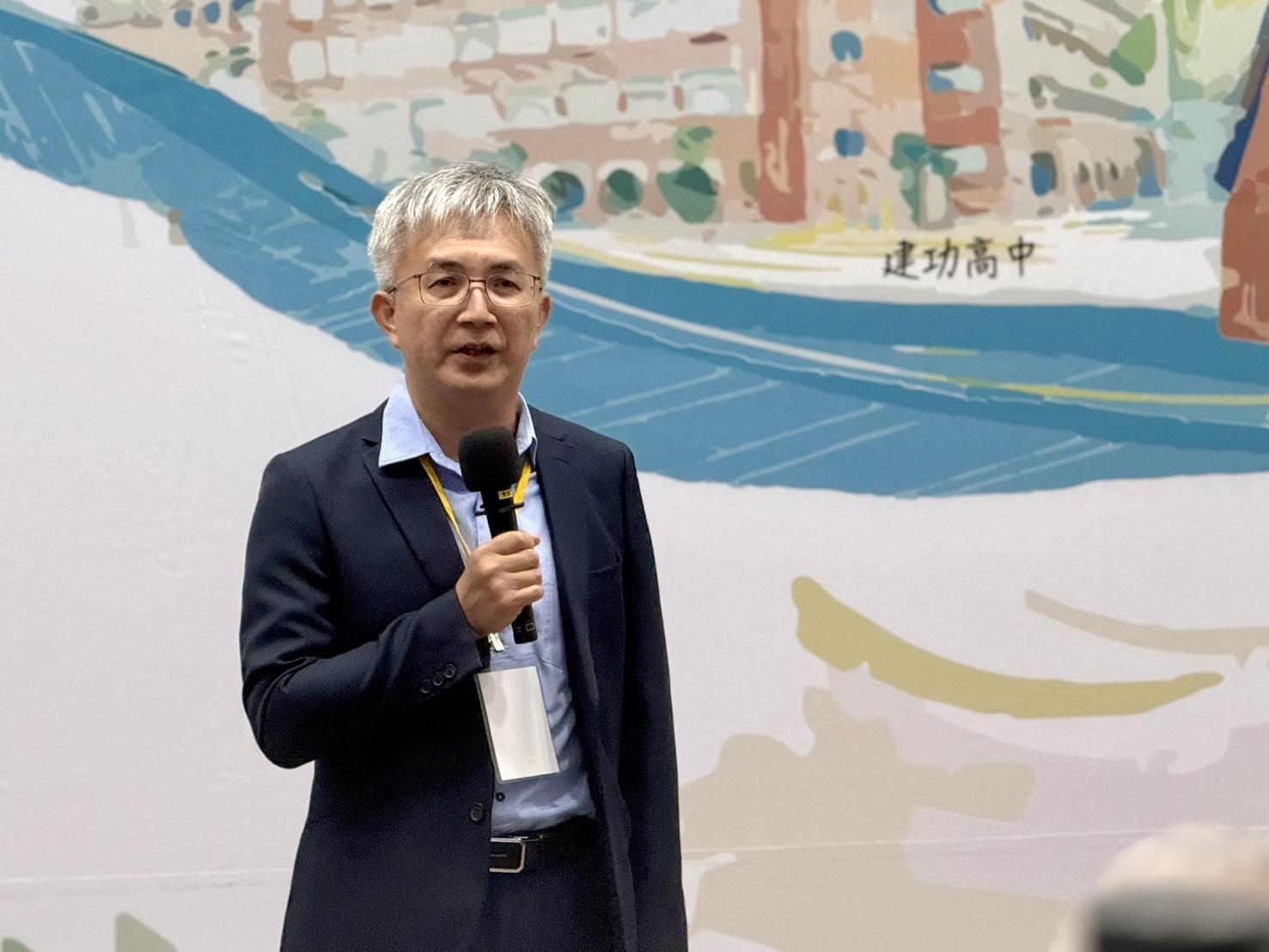
Water Resources Agency deputy director Chien-Cheng Chen (陳建成) said that the project is sure to have a positive impact on how the river basin is managed.
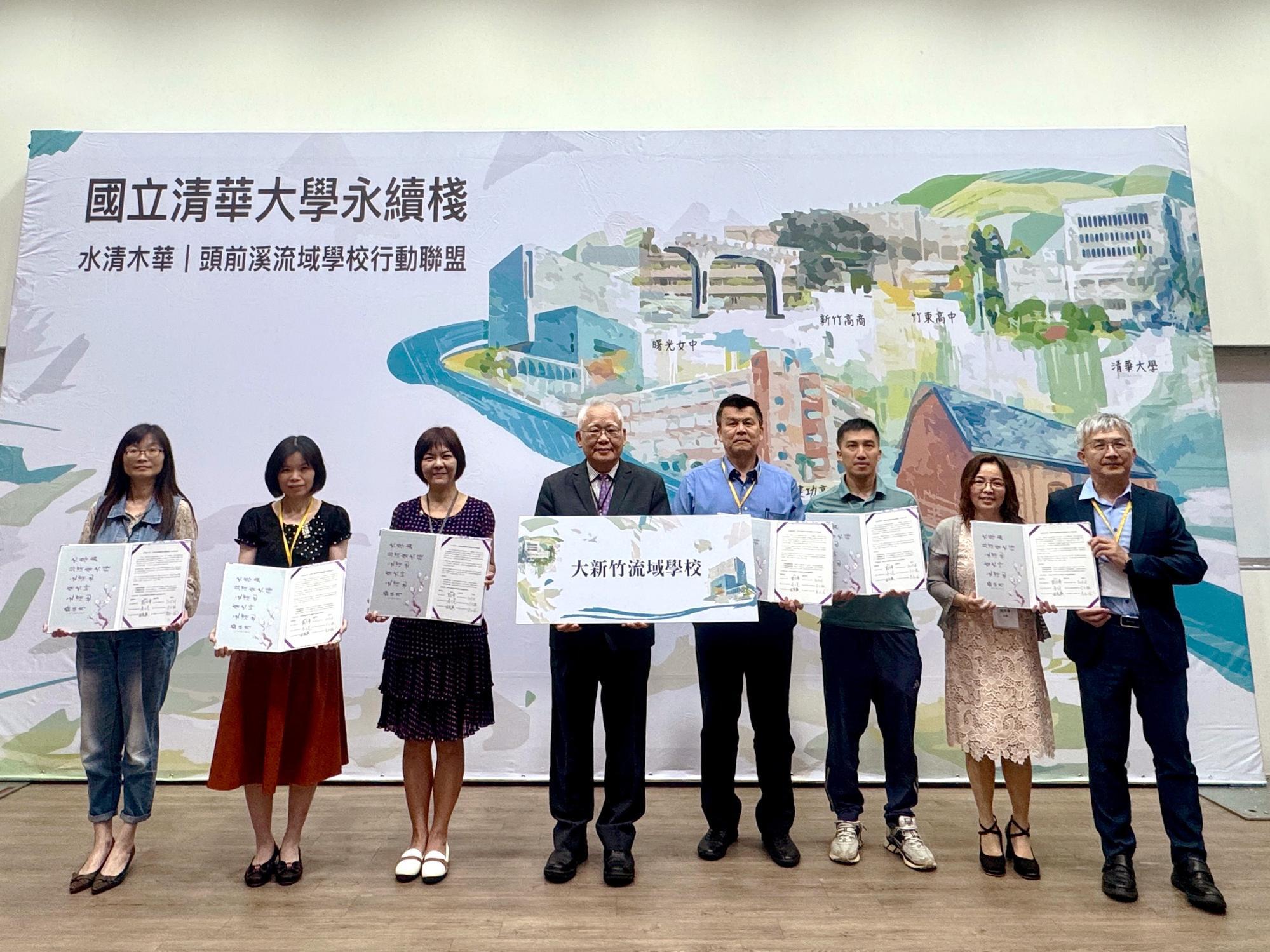
Ceremony attendees (left to right): SGSS principal Ho-Feng Lu (魯和鳳), HCCVS secretary Wen-Ya Lee (李文雅), HCHS principal Chen-Hsiang Guo (郭珍祥), Nyan-Hwa Tai (戴念華), CTHS principal Wen-Ko Chan (詹文克), CKSH director of general affairs Lin Ou Yang (歐陽麟), Hsiu-Chuan Chou (周秀專), and Chien-Cheng Chen (陳建成).
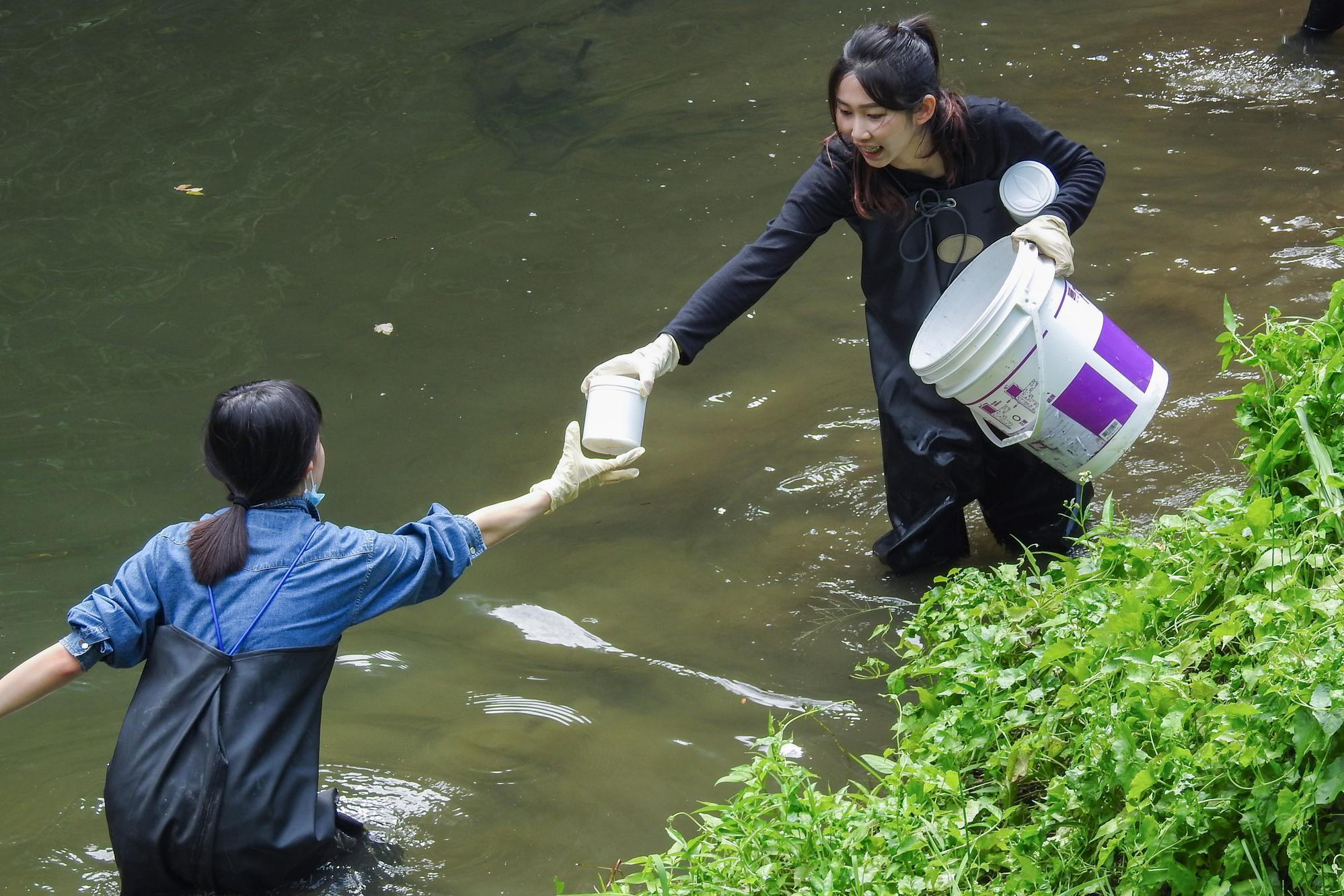
Hsiu-Chuan Chou's (周秀專) team collecting sediment samples from the river bed.
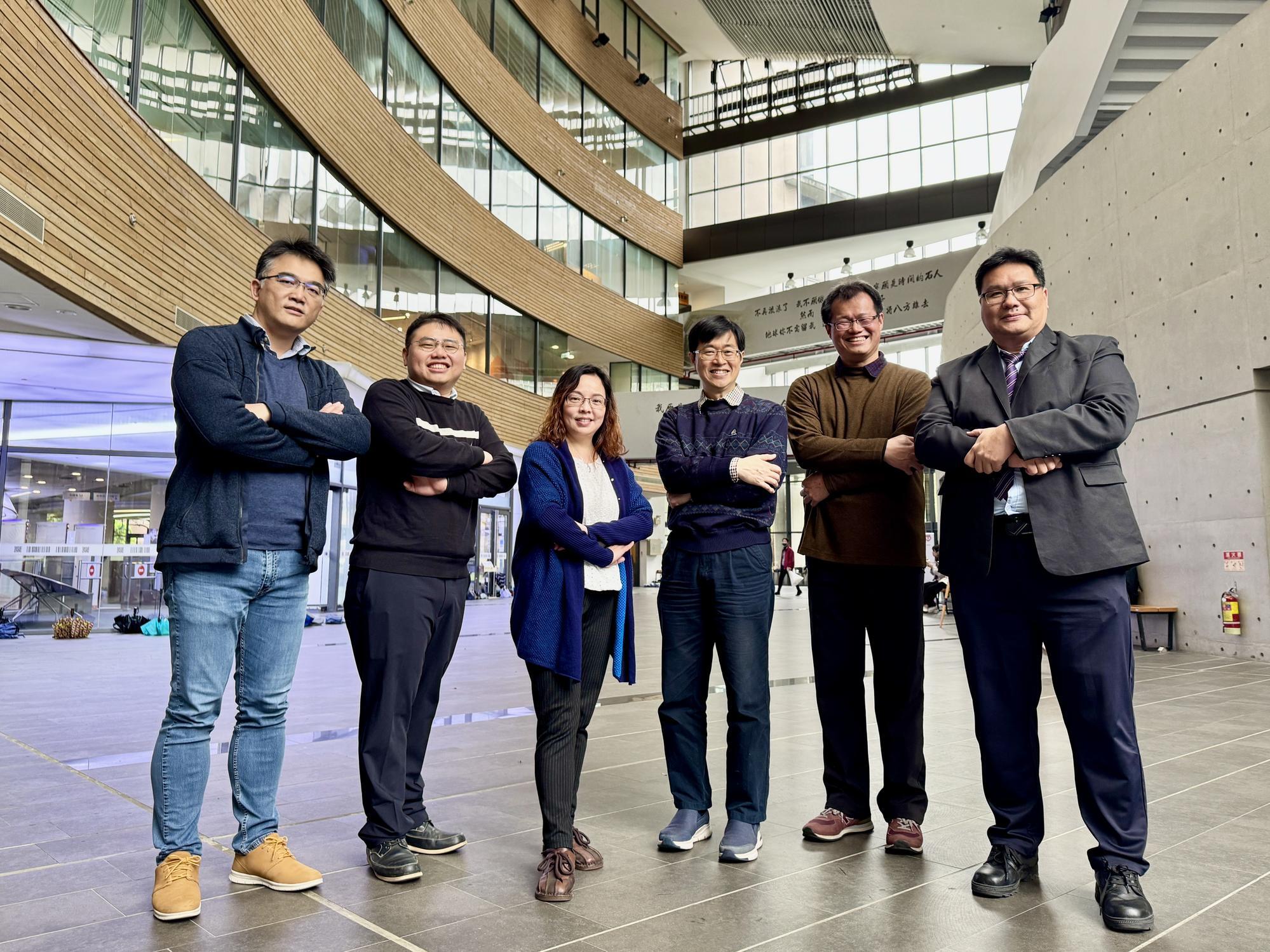
Members of the Touqian River Basin Conservation Project (left to right): Shun-Chi Wu (吳順吉), Tonny Kuo (郭孟倫), Hsiu-Chuan Chou (周秀專), Jow-Ran Chang (張焯然), Chun-Ming Chen (陳俊銘), and Hong-Lin Chan (詹鴻霖).
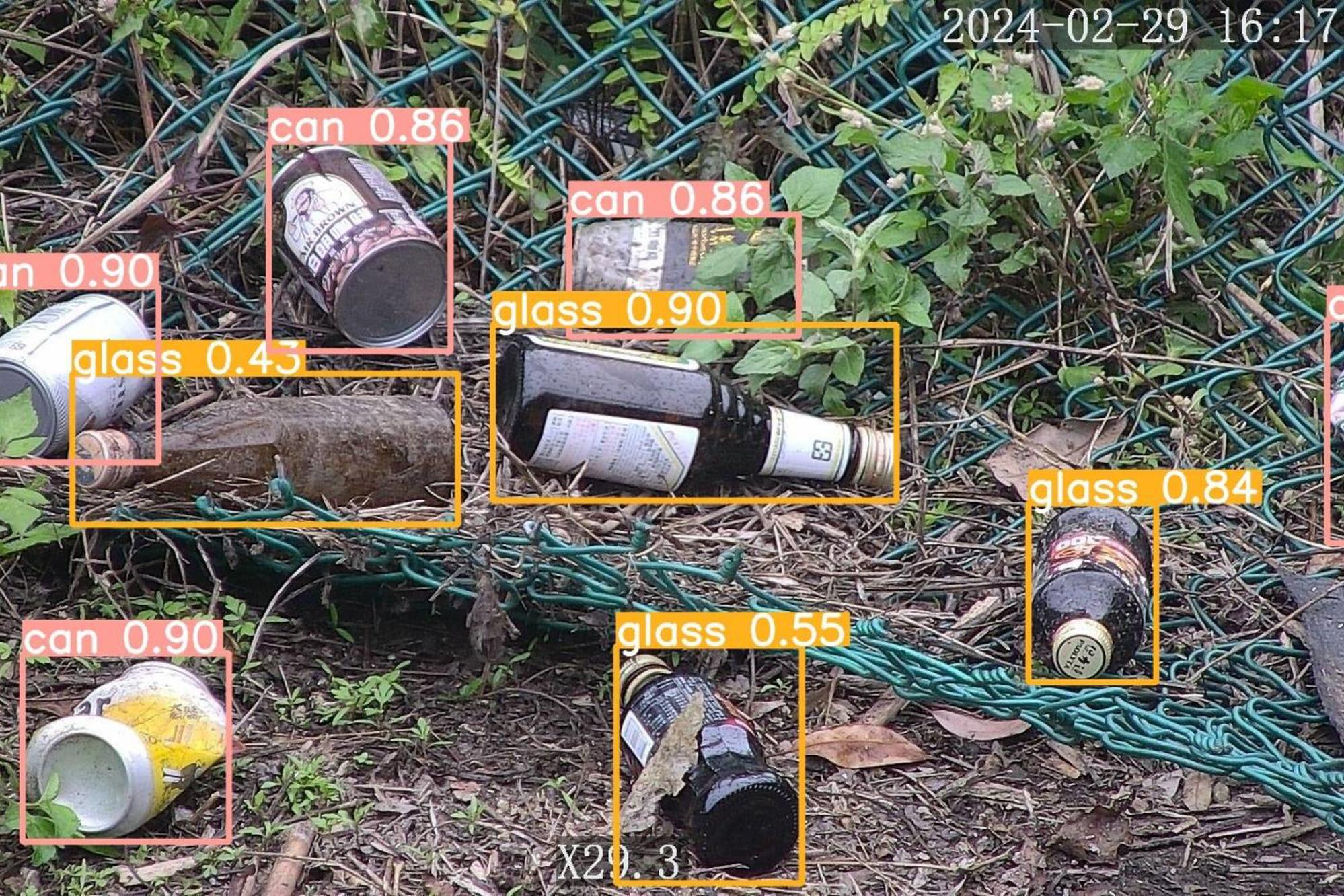
Professor Nen-Fu Huang's (黃能富) team used AI imaging to identify refuse in and around the Touqian River, including paper cups, aluminum cans, and glass bottles.
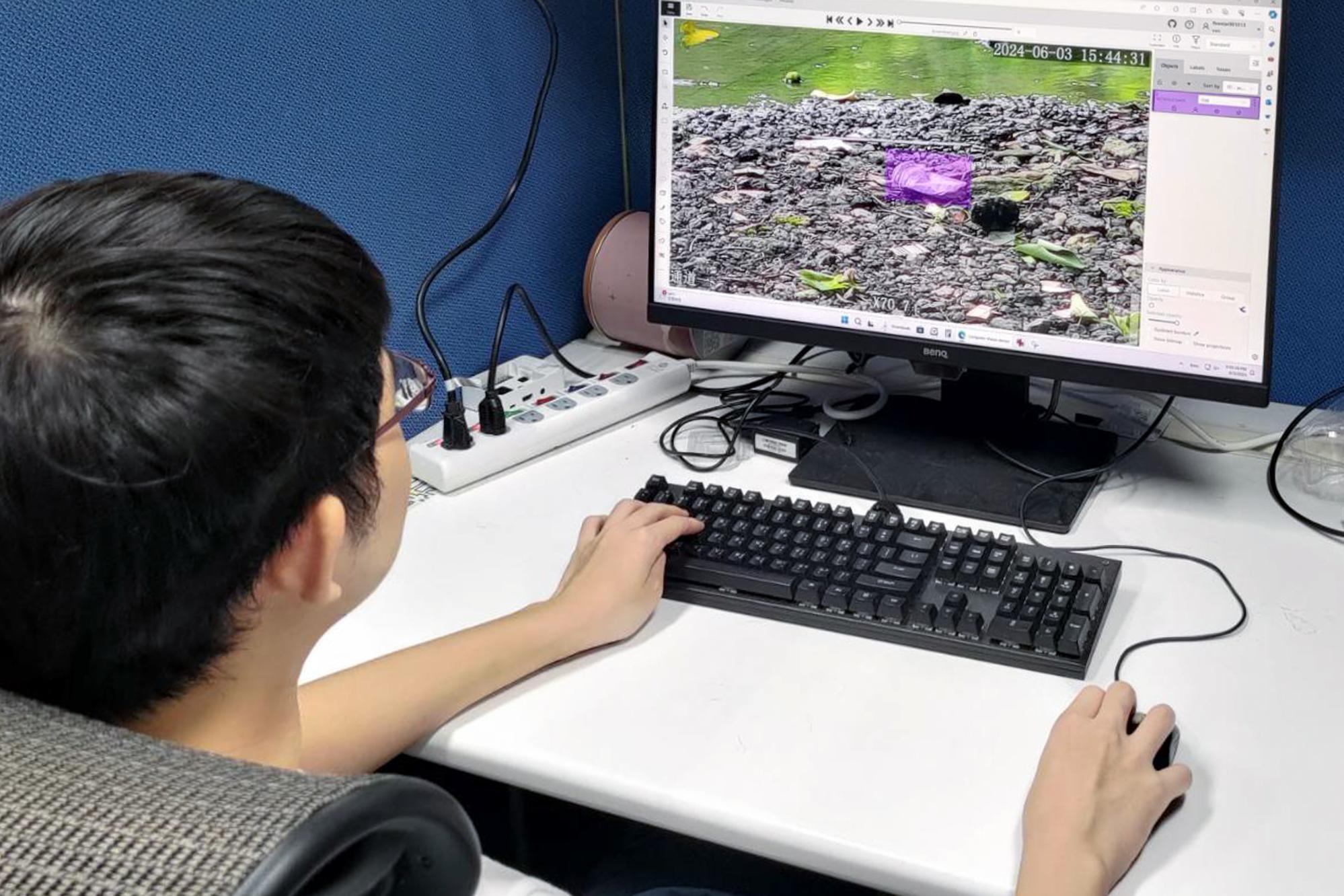
Nen-Fu Huang's (黃能富) team used AI imaging to identify refuse in and around the Touqian River.
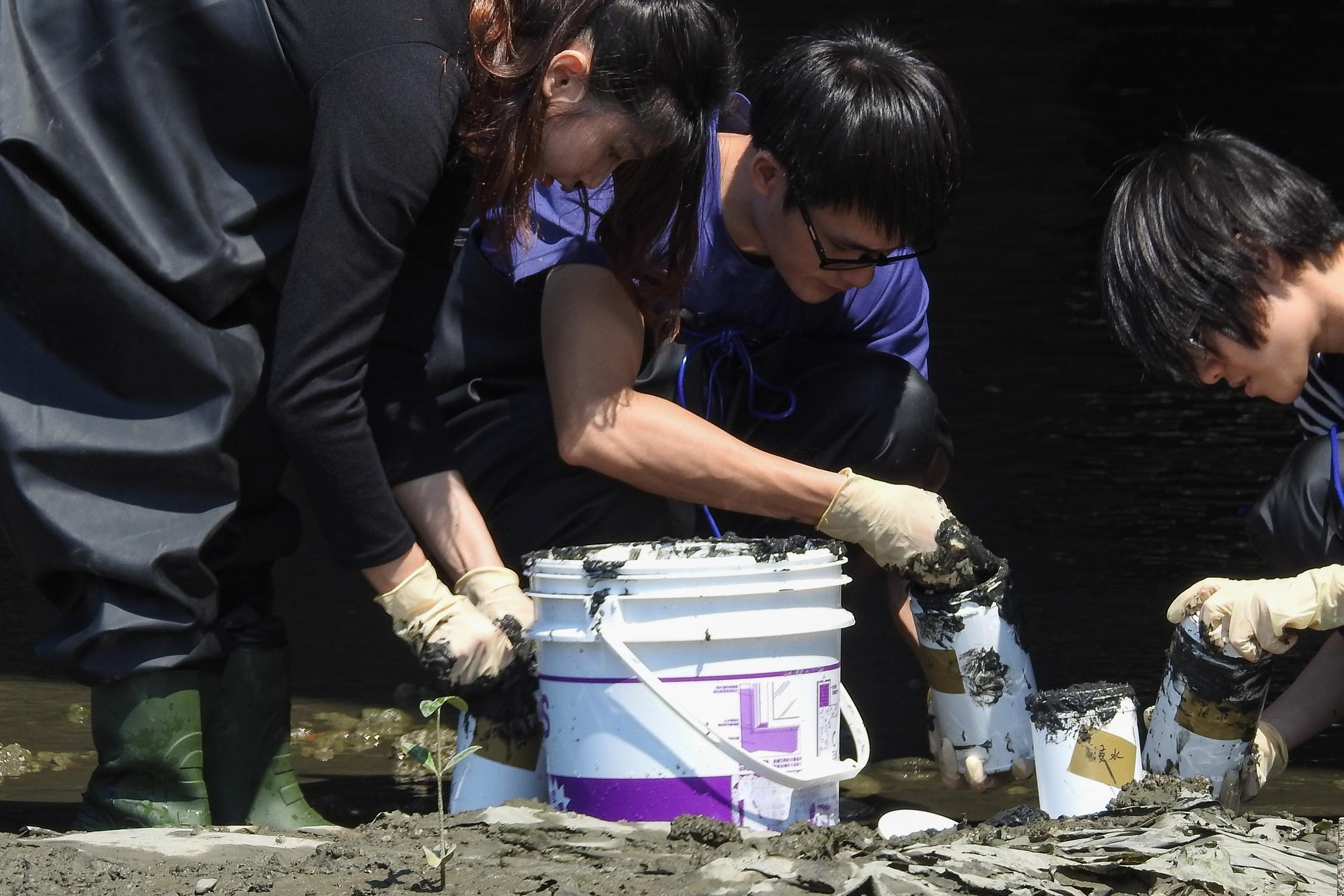
Hsiu-Chuan Chou's (周秀專) team collecting sediment samples from the river bed.










